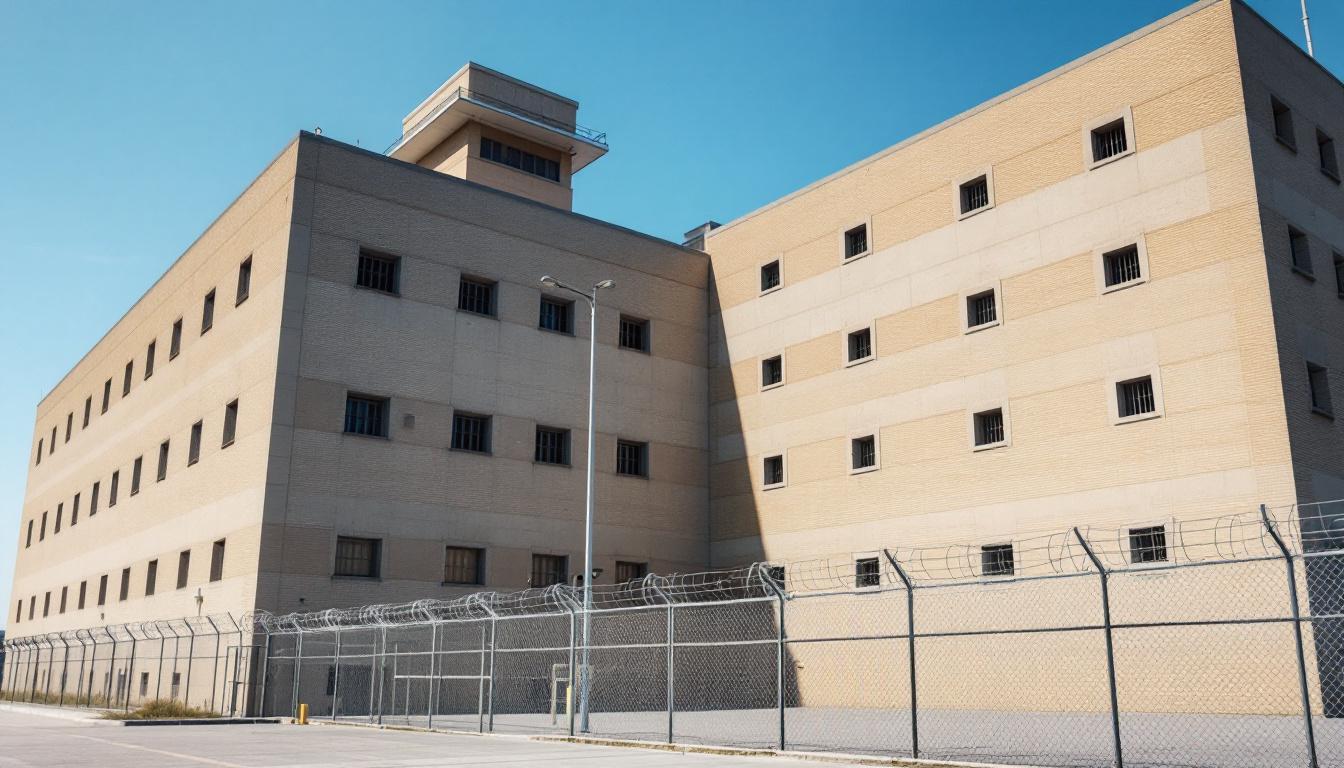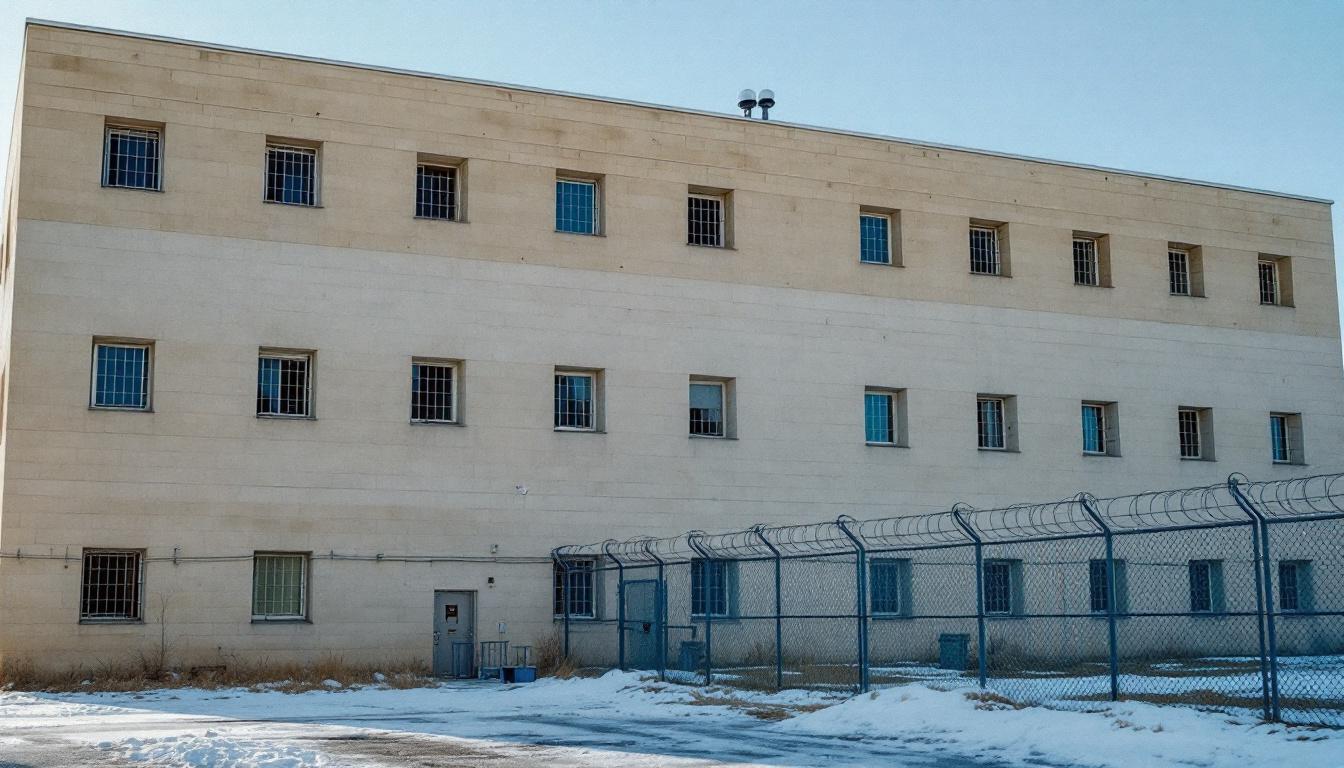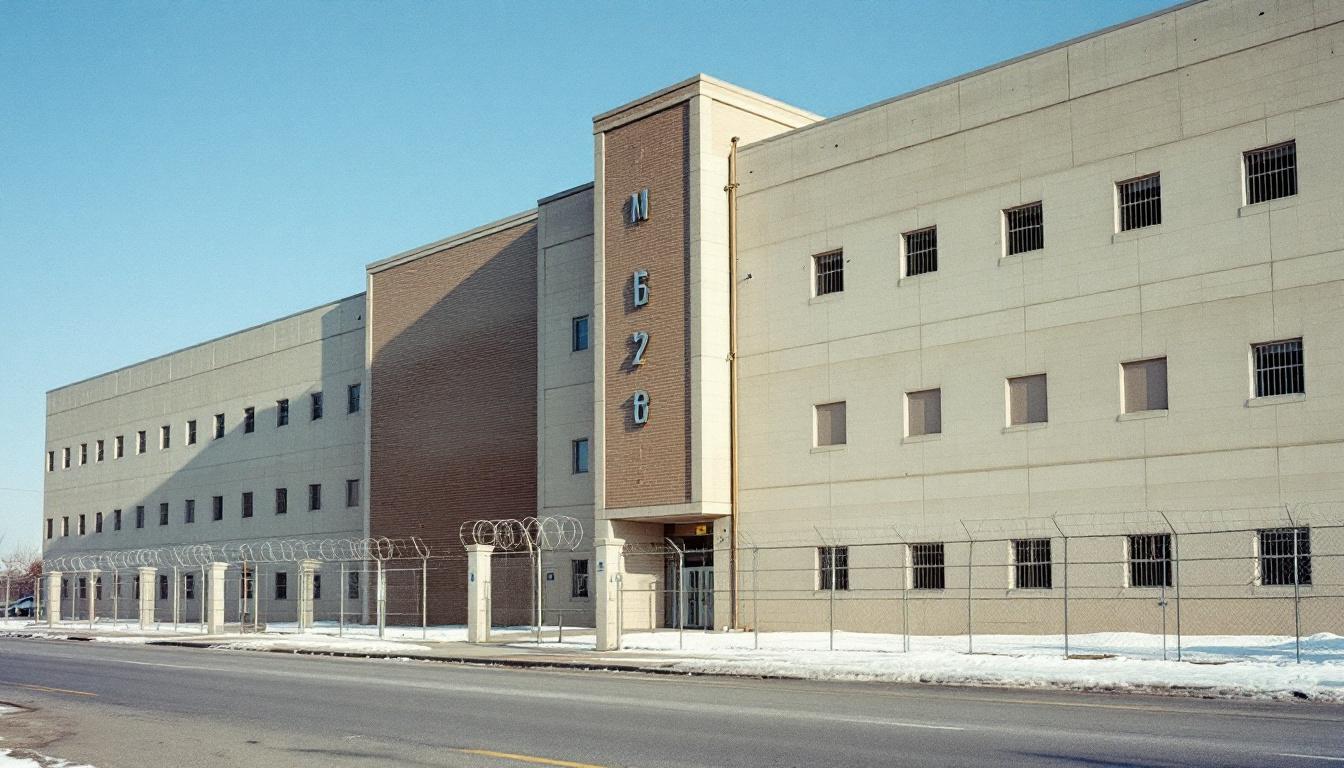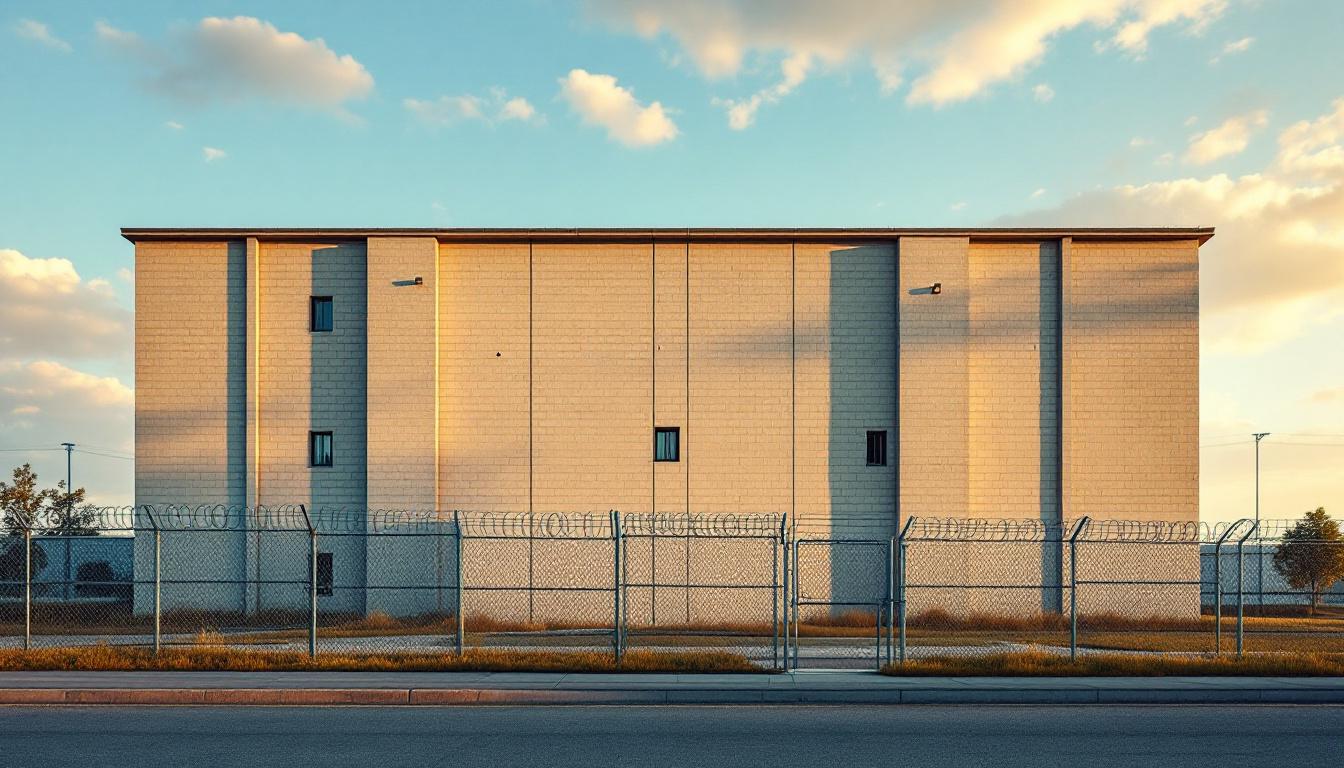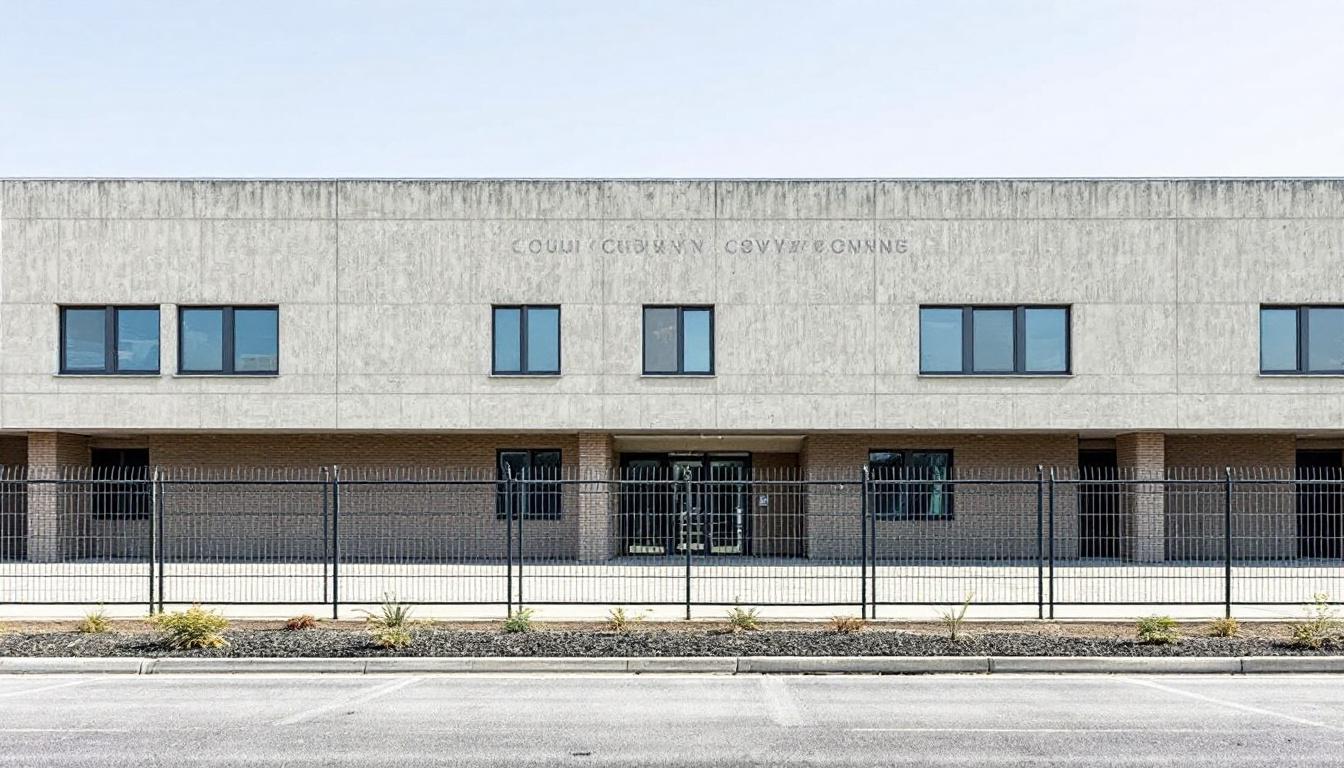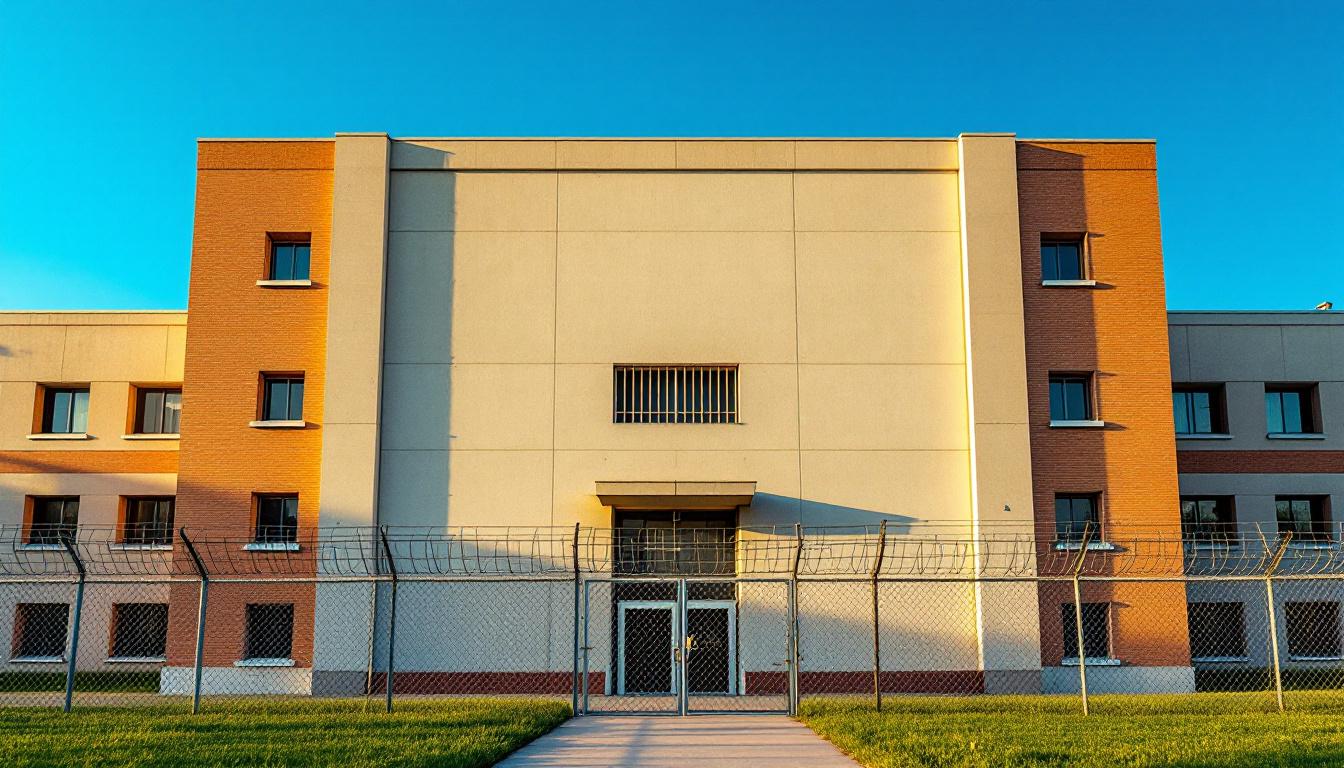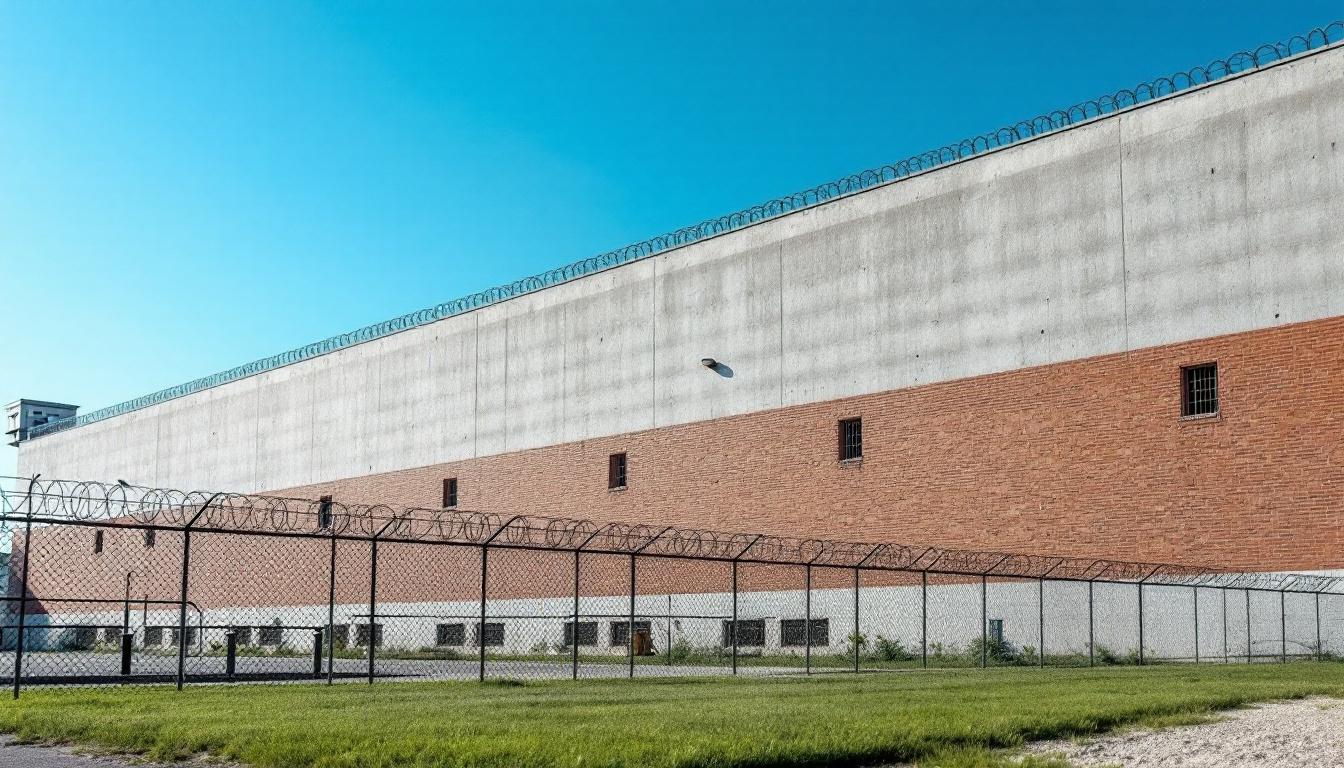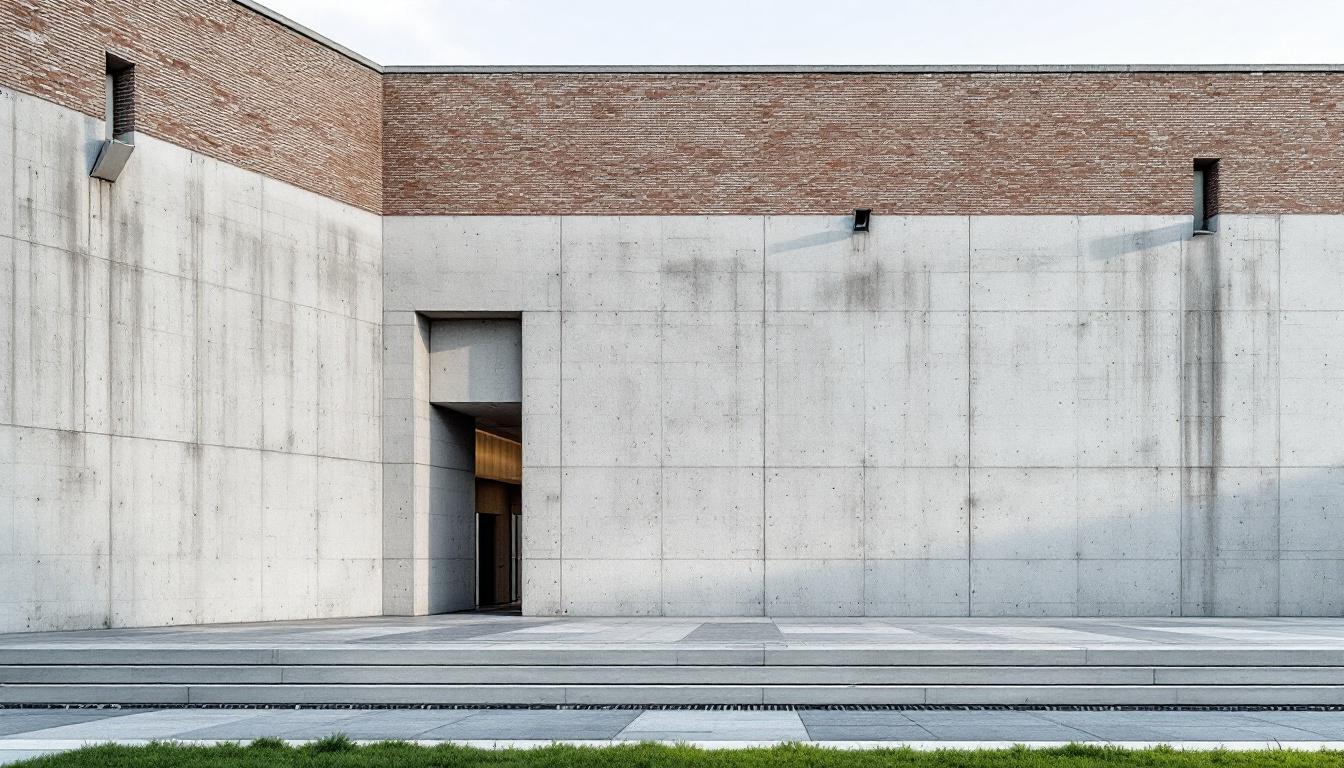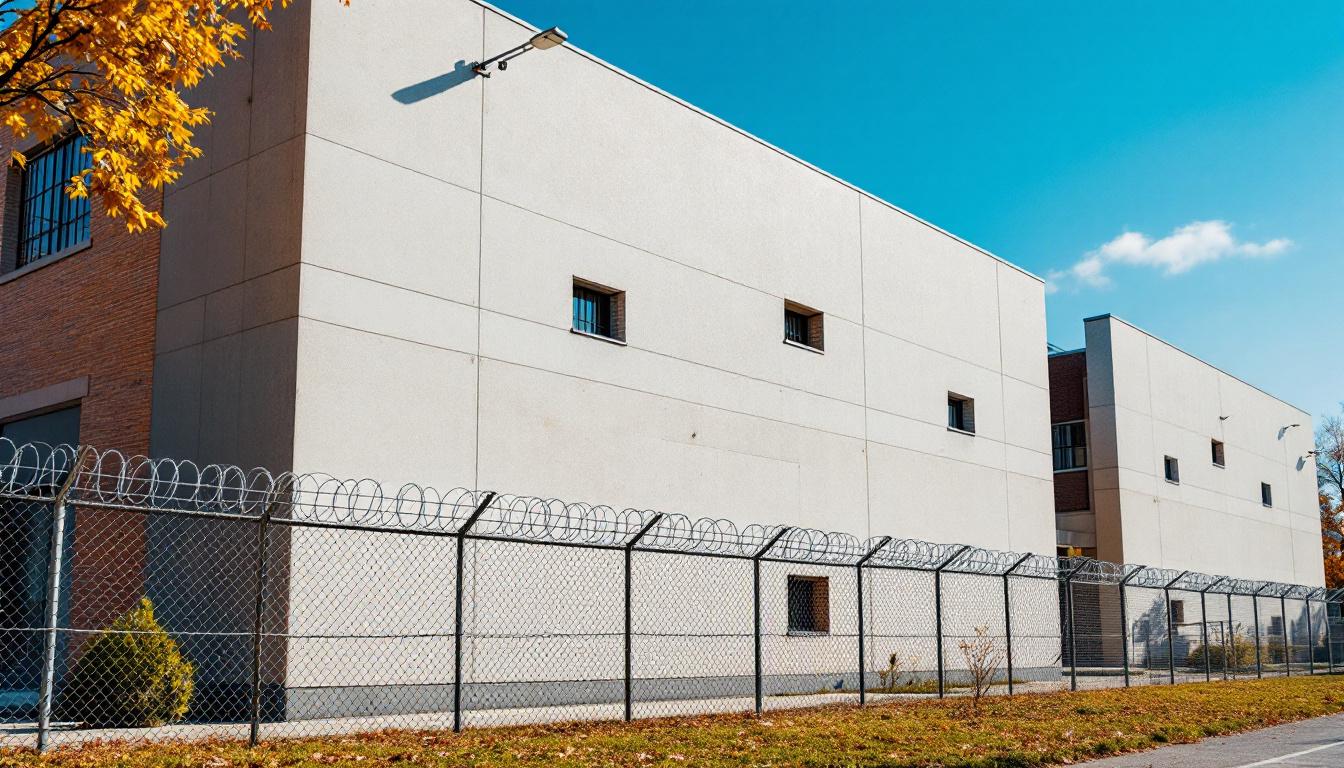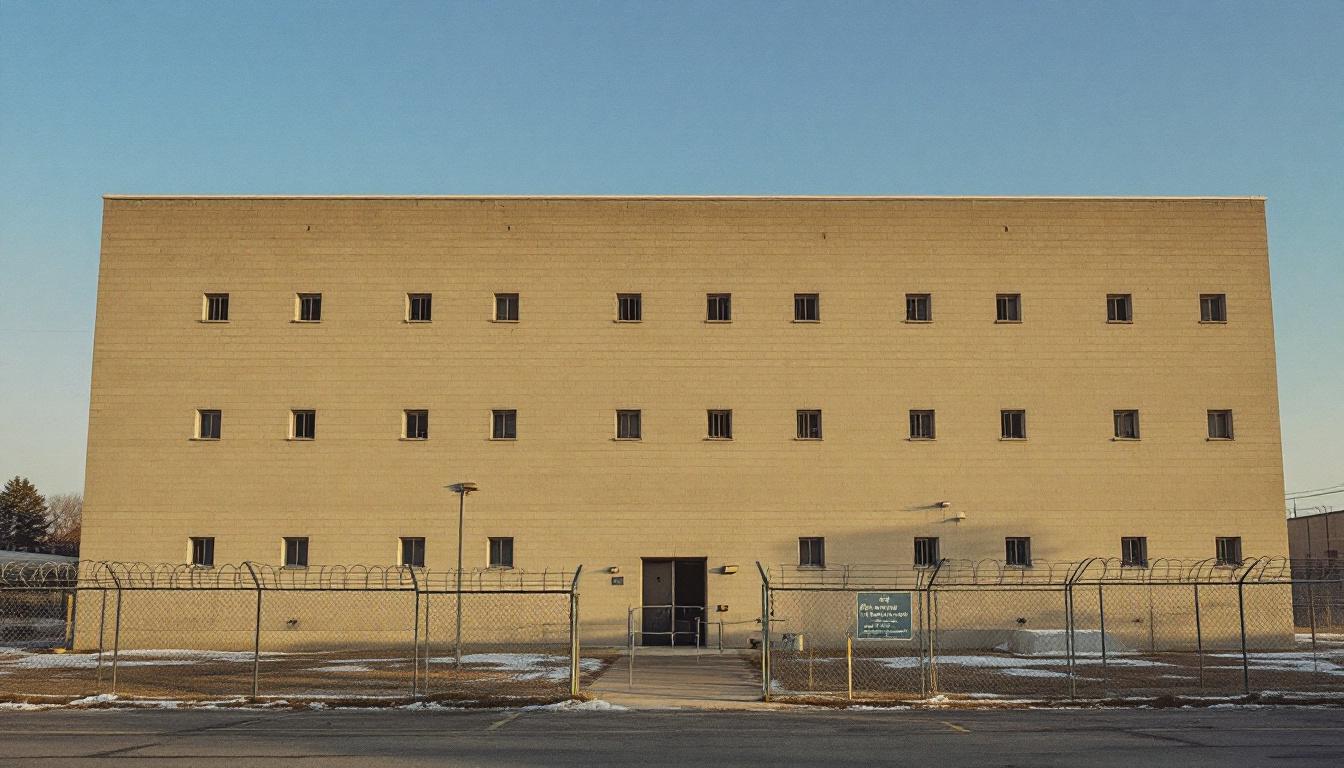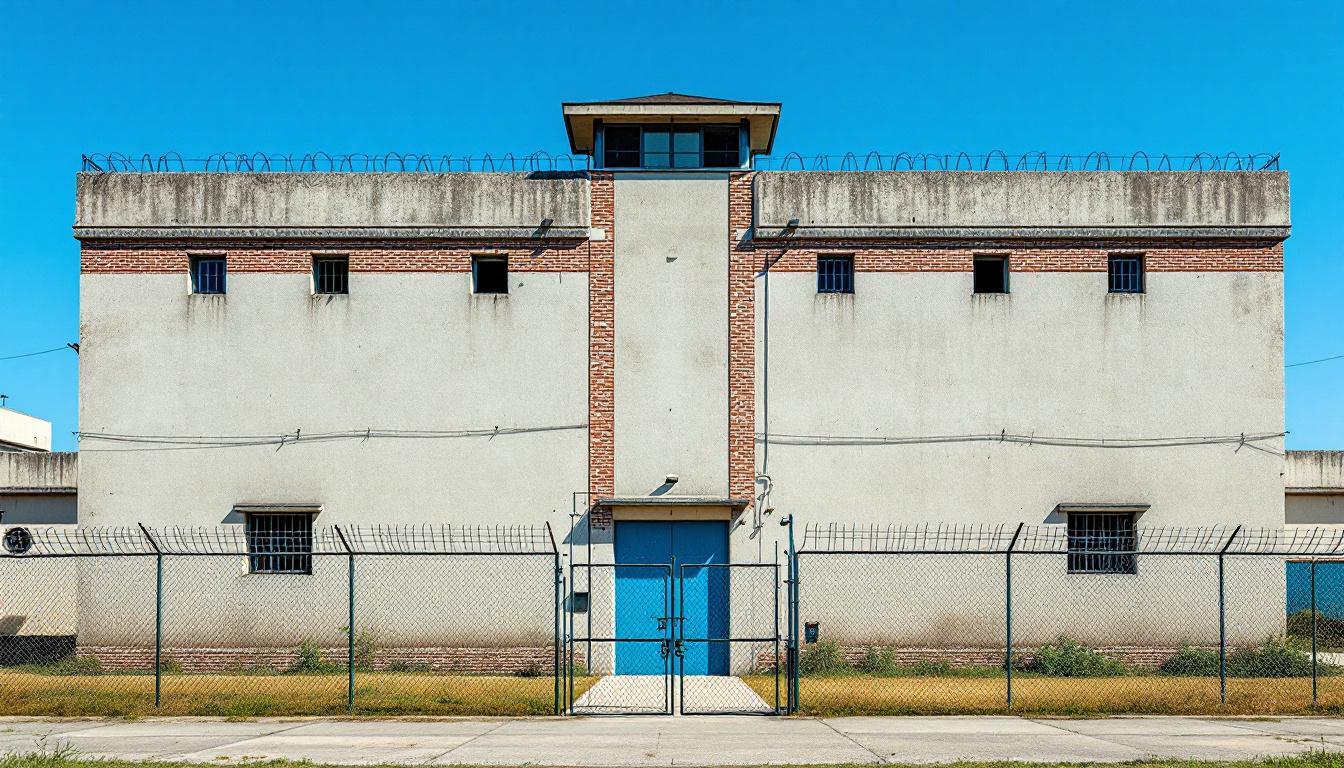
Quick Navigation
How to contact an inmate at Richland Correctional Institute
This comprehensive guide will walk you through how to connect with an inmate at Richland Correctional Institute. Follow the steps below to find an inmate and send letters and photos:
- Search for the inmate using our search tool below
- Create your account or log in to Penmate
- Write your message (up to 6,000 characters)
- Send instantly - inmates receive printed copies daily
Find an Inmate
Search for an inmate to start communicating today
Tip: You can search by first name, last name, or inmate ID number
To contact a person at Richland Correctional Institute start by searching for the person on the official facility website. Perform a search by following these steps:
- Step 1: Enter their first name and last name into the search form and click "Search"
- Step 2: Locate their inmate record
- Step 3: Write down their Inmate ID and any housing information provided
Important! Be sure to enter the person's full name. Nicknames should not be used.
How to Send Messages to Inmates

You can use your phone or computer to send emails, letters, and photos to an inmate. Messages are sent electronically to inmate tablets or kiosks at the facility. If you would like to send a message, start by searching for an inmate at Richland Correctional Institute.
Sending Photos and Postcards

A great way to send love and support to a loved one at Richland Correctional Institute is to send photos and postcards. It only takes a few minutes to send photos from your phone and it makes a huge difference. You can also mail postcards with words of support and inspiration, or design your own postcard for special moments like birthdays and holidays.
Important! Be sure not to send any explicit photos or they may not be approved by the facility. You can also use a photo printing app like Penmate to make sure your photos are printed at the correct size (4x6 or 3x5) and are mailed according to the rules and regulations of Richland Correctional Institute.
Frequently asked questions about Richland Correctional Institute
-
How long does it take to deliver a message?
If you're sending an email message your letter is usually delivered within 24-48 hours. For messages sent via mail you should expect delivery within 3-7 days. All messages will need be approved by Richland Correctional Institute.
-
How much does it cost to send a message to Richland Correctional Institute?
You can send a message free using your phone or mail a message via USPS for the price of a $0.60 stamp and envelope. You can also purchase credits or e-stamps from services starting at $1.99.
-
What services can I use to contact an inmate at Richland Correctional Institute?
Penmate
You can use Penmate to send letters and photos to an inmate from your phone. It's an easy way to stay in touch during your loved one's incarceration. Use the inmate locator to find an inmate's location and contact information, then you can send messages within a few minutes.
Securus messaging
Securus may be another option for communicating with an inmate at Richland Correctional Institute. You can create a friends and family account and purchase credits to send messages. All messages will be reviewed and must be approved by the facility.
JPay
Some county jails and state prisons may support sending messages with JPay. You must register an account with the system, find your loved one, and purchase stamps to send messages. For some locations you can also attach photos.
Smart Jail Mail
You may also check if Smart Jail Mail is available at Richland Correctional Institute. Smart Jail Mail is operated by Smart Communications and has contracted with some state and county jails. After purchasing credits, your messages and photos are sent to the facility, printed out, and then handed out to your loved one.
-
What is the mailing address of Richland Correctional Institute?
Mailing address:
Richland Correctional Institute
1001 S Olivesburg Rd
Mansfield, OH 44905
Phone: (419) 526-2100Business hours:
- Monday: 9:00 AM – 5:00 PM
- Tuesday: 9:00 AM – 5:00 PM
- Wednesday: 9:00 AM – 5:00 PM
- Thursday: 9:00 AM – 5:00 PM
- Friday: 9:00 AM – 5:00 PM
- Saturday: Closed
- Sunday: Closed
-
What are the visiting hours at Richland Correctional Institute?
Visiting hours at Richland Correctional Institute vary by housing unit and security level. Generally, visits are scheduled on weekends and holidays, with some facilities offering weekday visits. Contact the facility directly at (419) 526-2100 or check their website for the current visiting schedule. Visits typically last 30-60 minutes and must be scheduled in advance.
-
What items are prohibited when sending mail to Richland Correctional Institute?
Prohibited items typically include: cash, personal checks, stamps, stickers, glitter, glue, tape, staples, paperclips, polaroid photos, musical or blank greeting cards, hardcover books, magazines with staples, and any items containing metal or electronics. Only send letters on plain white paper with blue or black ink. Photos must be printed on regular photo paper (no Polaroids). Always check with Richland Correctional Institute for their specific mail policies.
-
How do I send money to an inmate at Richland Correctional Institute?
You can send money to an inmate at Richland Correctional Institute through several methods: 1) Online using JPay, Access Corrections, or the facility's approved vendor, 2) Money orders mailed directly to the facility with the inmate's name and ID number, 3) Kiosks located in the facility lobby, or 4) Over the phone using a credit or debit card. Fees vary by method, typically ranging from $2.95 to $11.95 per transaction.
-
Can I schedule a video visit with an inmate at Richland Correctional Institute?
Many facilities now offer video visitation as an alternative to in-person visits. At Richland Correctional Institute, video visits may be available through services like Penmate, Securus Video Connect, GTL, or ICSolutions. Video visits typically cost $10-20 for 20-30 minutes and must be scheduled in advance. You'll need a computer or smartphone with a camera and reliable internet connection. Contact the facility for their specific video visitation policies and approved vendors.
-
What identification do I need to visit an inmate at Richland Correctional Institute?
All visitors must present valid government-issued photo identification such as a driver's license, state ID, passport, or military ID. Minors must be accompanied by a parent or legal guardian who can provide the minor's birth certificate. Some facilities require visitors to be on the inmate's approved visitation list, which may require a background check. Contact Richland Correctional Institute for specific ID requirements and visitor approval procedures.
-
How can I find out an inmate's release date?
To find an inmate's release date at Richland Correctional Institute, you can: 1) Use the online inmate search tool if available, 2) Call the facility's records department, 3) Contact the inmate's case manager or counselor, or 4) Have the inmate provide this information during a call or visit. For privacy reasons, some facilities only release this information to immediate family members.
Facility Overview
Contact Information
Richland Correctional Institute1001 S Olivesburg Rd
Mansfield, OH 44905
Phone: (419) 526-2100
Official Website

About Richland Correctional Institute
Serving the greater Youngstown community and surrounding areas of northeastern Ohio, Richland Correctional Institution operates as an integral component of the state's comprehensive correctional network. This OH correctional facility typically maintains its commitment to public safety while working toward meaningful rehabilitation outcomes for the individuals in its care. The institution generally provides a structured environment where inmates services encompass various educational, vocational, and therapeutic programming designed to support successful community reintegration.
Within Ohio's regional corrections framework, the facility often collaborates with local organizations and agencies to deliver programs that may include basic education completion, job skills training, and substance abuse counseling. Mental health support services are typically available to address the diverse needs of the incarcerated population, while library resources and recreational activities generally contribute to maintaining a stable institutional environment. The correctional institution commonly emphasizes preparing individuals for their eventual return to the community through programming that focuses on developing practical life skills and addressing underlying issues that may have contributed to criminal behavior.
Located in the industrial heartland of Ohio, Richland Correctional Institution typically operates within established state guidelines while adapting its services to meet the specific needs of its population. The facility generally maintains connections with regional workforce development initiatives and educational institutions, recognizing that successful rehabilitation often depends on providing inmates with concrete opportunities for personal growth and skill development during their period of incarceration.
Programs & Services
Personal transformation through structured programming forms the cornerstone of rehabilitation efforts at Richland Correctional Institution, where comprehensive services address the multifaceted needs of inmates seeking meaningful change. The facility's approach recognizes that sustainable reintegration requires more than mere incarceration; it demands deliberate cultivation of skills, knowledge, and personal insight that enable individuals to construct productive futures. Through carefully designed interventions and support systems, the institution fosters an environment where inmates may develop the cognitive tools and practical competencies necessary for successful community reentry.
Educational initiatives typically serve as the foundation for personal development, offering inmates opportunities to pursue academic advancement through various learning pathways. These services often include literacy improvement, high school equivalency preparation, and specialized English as Second Language instruction for non-native speakers seeking to enhance their communication abilities. Additionally, vocational job training services provide practical skill development in trades and technical fields, equipping participants with marketable competencies that may facilitate employment upon release. Such programming recognizes that educational attainment and vocational expertise significantly contribute to reduced recidivism and enhanced life prospects.
Therapeutic and wellness services complement academic and vocational offerings by addressing the underlying factors that may have contributed to criminal behavior. Recovery services typically provide structured support for inmates struggling with substance abuse issues, while stress management programming teaches coping strategies essential for navigating both institutional and post-release challenges. Additionally, peer support groups create opportunities for inmates to engage in meaningful dialogue about personal growth and behavioral change, fostering accountability and mutual encouragement. Physical fitness services often round out these offerings, promoting both physical health and mental well-being through structured exercise and recreational activities that contribute to overall rehabilitation goals.
Daily Life & Visitation
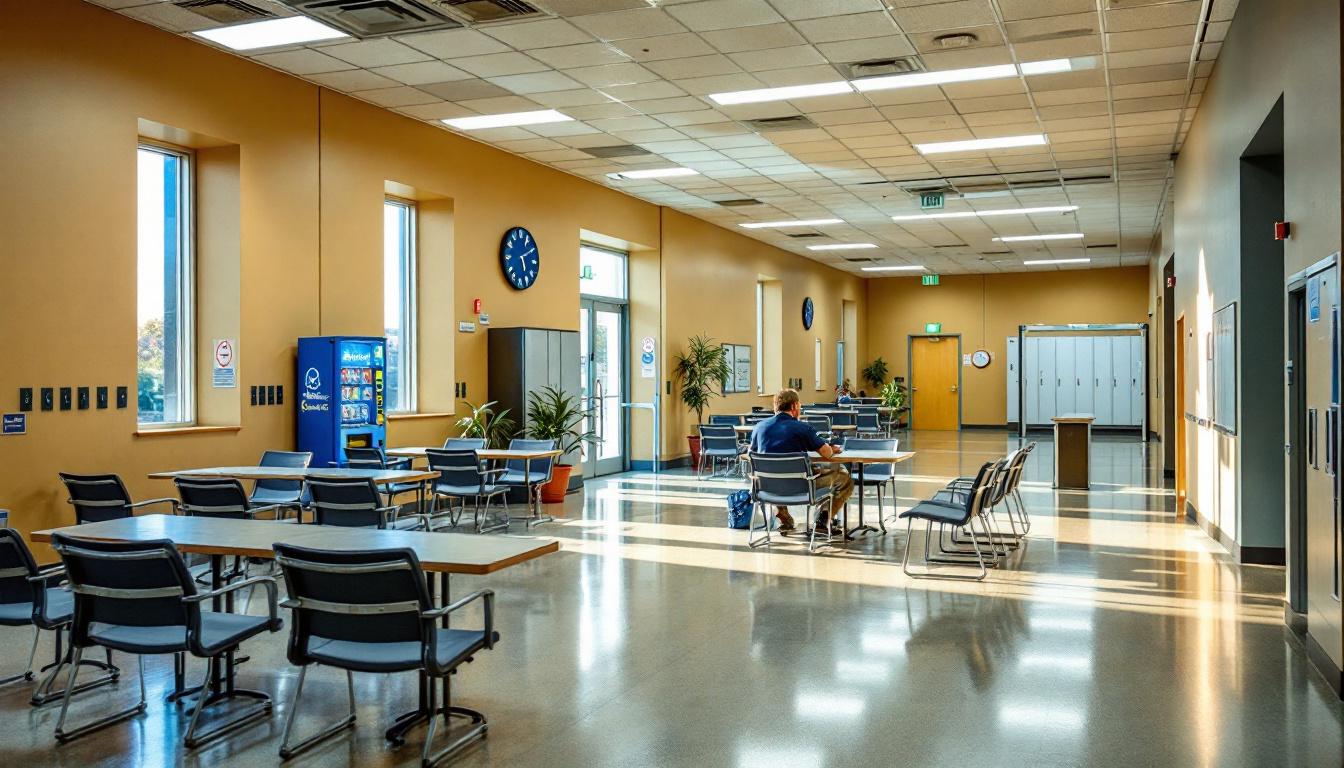
The concrete walls and steel doors of the housing units at Richland Correctional Institution define the physical boundaries where inmates now navigate their daily existence, creating a structured environment that operates with military-like precision. Inmates regularly follow established routines that typically begin with early morning counts and progress through scheduled meal times, work assignments, and evening lockdown procedures. The facility generally maintains a regimented schedule that provides predictability, with inmates adapting to the rhythm of institutional life through careful attention to rules and expectations that govern movement throughout the compound.
Living accommodations typically consist of shared cells or dormitory-style housing units, where inmates learn to coexist in close quarters while managing personal belongings within strictly regulated limits. The dining halls usually serve meals at designated times, with inmates often forming informal social groups during these communal periods. While personal space remains limited, inmates generally adapt by establishing routines around commissary purchases, personal hygiene schedules, and quiet time for reading or correspondence. The facility may offer various housing classifications based on security levels and behavioral considerations, allowing some inmates to earn placement in less restrictive units over time.
Additionally, structured programming schedules typically include educational classes, vocational training opportunities, and recreational activities that provide meaningful ways to spend time while serving their sentences. Work assignments often range from kitchen duties and maintenance tasks to clerical positions, giving inmates the chance to develop skills and earn modest wages. Visitation policies usually allow regular contact with family members and approved visitors, while telephone and mail privileges provide additional means of maintaining connections with the outside world. These programs and communication opportunities often serve as crucial elements in helping inmates maintain hope and work toward successful reintegration into their communities upon release.
Ready to Connect?
Start communicating with your loved one today
Search for an Inmate
